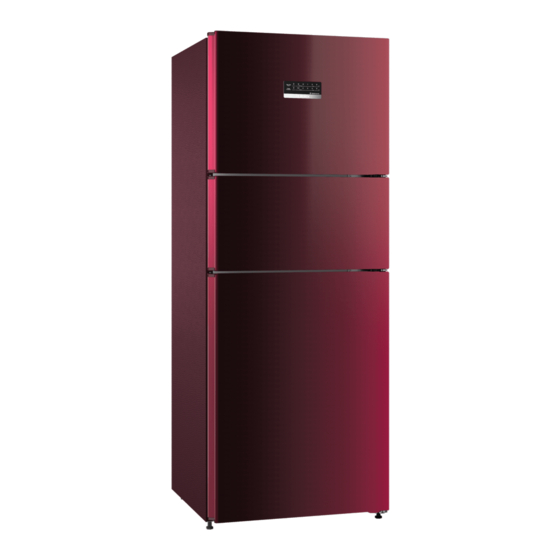
11.4 Shelf life of frozen food
at −18 °C
Food
Fish, sausages, pre-
pared meals and
baked goods
Poultry, meat
Vegetables, fruit
11.5 Defrosting methods for
frozen food
CAUTION
Risk of harm to health!
During the thawing process, bacteria
may multiply and spoil the frozen
food.
Do not refreeze food after it has
▶
been defrosted or started to de-
frost.
Refreeze food only after cooking.
▶
These items should no longer be
▶
stored for the maximum storage
period.
¡ Defrost animal-based food, such
as fish, meat, cheese, quark, in the
refrigerator compartment.
¡ Defrost bread at room temperat-
ure.
¡ Prepare food for immediate con-
sumption in the microwave, in the
oven or on the hob.
Storage time
up to
6 months
up to
8 months
up to
12 months
Variable-temperature compartment en
Variable-temperature compartment
12 Variable-temperature
compartment
You can use the variable-temperature
Variable-temperature compartment
compartment as a refrigerator com-
partment or to gently freeze food at
low temperatures.
The temperature can be set from
−6 °C to 6 °C.
The recommended temperature in
the variable-temperature compart-
ment is 1 °C
12.1 Storage recommenda-
tions in the variable-tem-
perature compartment
From 1 °C to 6 °C, store ready
meals, baked goods and food that
should not be frozen, e.g. yoghurt
and other dairy products.
From −3 °C to −6 °C, gently freeze
delicate foods – such as meat, saus-
age and fish, as well as pureed food
and ice cream – for up to a week.
Cutting, slicing or dividing the food
into portions before freezing allows it
to defrost more quickly.
19
